Is your Workplace adopting Apple products?
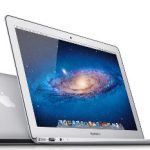
Mac OS virtualization software company Parallels on Tuesday revealed a new crowdsourced project called the "Apple-in-the-Workplace Barometer", which lets users fill out a questionnaire about their workplace to create an overall view of how the business world is changing in terms of Mac adoption, acceptance of personal devices ("BYOD"), and of course, use of desktop virtualization.
The project tracks responses from IT professionals, managers, and knowledge workers, and plots their responses on an X-Y axis of Apple Support (current mobile policies) over Apple Adoption (opportunities for expansion). It is broken into four quadrants, "Players" versus "Laggards" and "Leaders" versus "Rookies." Obviously because it's a project from Parallels, it is primarily interested in creating a clearer picture of Apple's place in enterprise today.
One rotten Apple spoiled my perfect post-PC pie
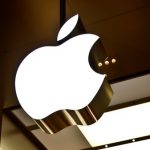
I can't win. Just when I think I've finally cooked-up the perfect post-PC computing recipe, along comes some killjoy to spoil all the fun. This time around it's Apple. The Cupertino goon squad is on a mission to stomp out all unauthorized uses of lowercase letter "i" (among other things), and my latest pet project -- moving my entire computing life to a non-PC device -- is about to fall victim to their litigious ways.
You see, I made the unforgivable decision to deviate from Apple's proscribed post-PC formula (i.e. iPhone/iPad) and instead embrace the ways of the rebel Android Army. After several weeks of tweaking and tuning, I've finally achieved a level of PC-independence I never thought possible. But given last week's Apple-Samsung jury decision, I fear it may have all been for naught. That's because the reverberations from such a landmark case will no doubt spread far beyond its principle defendant (you didn't really think this was about hardware, did you?) to strike at the very heart of Google's OS strategy.
5 reasons the Apple-Samsung ruling is BAD for everyone

Apple v. Samsung is a game of thrones. Their latest episode is far from any quarrels the two have had in the past, which now look like child's play compared to what happened in San Jose, California. If the outcome of the trial is of any indication what we're looking at is a major game changer in the smartphone and tablet industry, and not for the better.
iOS won, and Android lost. That's one simple way to look at it, and that's only the tip of the iceberg. Sadly what we're looking at is a much deeper influence that will be felt in the near future. Here are five reasons why the ruling is BAD for the industry. (Editor: See Wayne Williams' response "5 reasons the Apple-Samsung ruling is GOOD for everyone".)
Apple wins big: Samsung ordered to pay $1.05 billion in damages

Just yesterday I reported that a South Korean court had found Apple and Samsung both guilty of infringing each other’s patents, and claimed that in a good patent war no one wins. Turns out I was wrong. Big time. A few hours after that story posted, news reached us that the jury in the American leg of the global Apple vs. Samsung battle returned a verdict, and a damning one for Samsung.
After taking less than three days to deliberate the case, the jury found that Samsung copied from Apple, rejected all of Samsung’s own counter claims, and awarded the American company $1.05 billion in damages.
Apple vs Samsung: In a good patent war no one wins

In the 1983 classic movie WarGames, Matthew Broderick hacks into a top secret super-computer and comes close to initiating World War III. The global catastrophe is only avoided when the computer, "Joshua", starts playing Tic Tac Toe against itself and discovers it can’t win, coming to the inevitable conclusion that "the only winning move is not to play."
It’s a film that maybe Apple and Samsung should sit down and watch together. While the jury is still out in their current big Californian patent case, in South Korea, Samsung’s home and just one of several countries where the global lawsuit is being fought, the court has just ruled simultaneously that both firms infringed each other’s patents. And, as a result, ordered them to both pay damages, and imposed sales bans on all related products (none of which are the latest models).
Tony Scott: Apple flogs old movies and profits from a man’s suicide
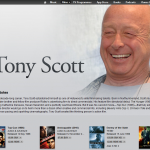
When film director Tony Scott committed suicide, Apple quickly put up a tribute to him on the iTunes store. Except the page is less of a tribute and more of a shop window. Underneath a picture of Scott, and a brief biography, are links to all of his movies available to rent or buy from Apple. It doesn’t mention his death, at all, just lumps all of his films together into a collection that’s prominently listed on the front Films screen.
When I first encountered the so-called tribute page, I was a little dismayed. When someone dies, the proper etiquette is to mourn them, and to reflect on their lives and on their achievements. It isn’t, generally, to try and make a quick buck from their passing. But that’s exactly what Apple has done here -- and it's not the first time.
I'm an early adopter, and I can't help it

Second in a series. "My name is MB and I'm an addict" is what I would say at the first Early Adopters Anonymous meeting.
I'm driven by an addiction to try a product as soon as possible, at the earliest point in its life cycle and I can (silently) admit to it being a compulsive behavior. It's not that I don't enjoy it, but I feel that's what I should do with every new product that I can get my geeky hands on. Yes, that's the second confession, and I'm fairly certain it will not be the last either.
Is Apple Store overstaffed?
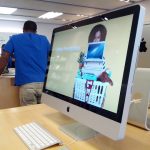
The Apple Store staffing scandal surprises me -- if it can be called that. Rumored layoffs, hours cutbacks and hiring freezes led to an immediate response from Apple, that seemingly puts new retail chief John Browett in a tight spot. As a former Apple customer and someone who still frequents the stores for reporting purposes, I can see why Browett would want to make changes. The ratio of employees to customers is embarrassing. There's kill and way overkill. What's that saying about having too much of a good thing?
The company had reportedly started laying off employees in the United Kingdom, which didn't strike me as odd with the Olympics ending and the reasonable scenario of releasing temporary employees added for the event. Stories showed up in my RSS feeds earlier in the week. I ignored them, as I do most Apple rumors. But on Wednesday, I saw Gary Allen's analysis of Apple Store profit goals behind the rumored staffing changes, which made much more sense of them. Allen has an excellent track record reporting about Apple Store. Perhaps Apple thought so, too. Official response came yesterday.
Apple vs Samsung: The defense of common sense

The transpiring events of Apple’s lawsuit against Samsung divides the technology industry and hones in on several overarching intellectual property talking points and issues that far extend the perpetual "eye for an eye" battle the companies occupy. Many writers and pundits state that the lawsuit will be a primary stepping stone to IP and patent reform and will be a primary decider of the future of patent law in the technology industry.
What the trial really rises to the surface: the two differing approaches with which Apple and Samsung view the situation. Apple’s perspective hinges on protecting the intrinsic and unique value of their intellectual property, whereas Samsung focuses more on the end game of consumer perception.
Turn your iPad into a Mac tablet
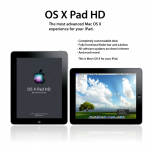
If Surface is the hit Microsoft hopes it will be, there’s the possibility that Apple might follow suit with an OS X powered MacPad at some point in the future (well, we can hope, can’t we?). The good news is you don’t actually have to wait for Apple, before trying out OS X on a tablet, you just need OS X Pad HD.
The advanced theme from Fnet Designs transforms your iPad into a Mac tablet with a fully functional Finder bar, and lets you add apps to the dock and change its style to match any of the 70 available wallpapers (or your own), create sidebar folders for Finder windows, and access settings and customization options through the System Preferences Menu. All software updates are applied directly through the theme.
I need a 15-inch tablet to replace my laptop

Some people don’t like tablets, while others defend them. I’ve often wondered why people seem so crazy about them, but that is mostly because what I do requires me to run Windows, and Windows-based tablets (aka slates in the Microsoft Store) are neither popular nor cheap, especially with the hardware configuration that I need.
I say need, not want, because it is mission-critical that I finish the task at hand in a decent amount of time, and to do that requires powerful hardware. But there’s another reason as well, and it involves the size of the display. In one of my previous articles, I wrote that real work can’t be done on a tablet and I gave five reasons as to why it’s (still) true. Today, I’d like to add the sixth reason to that list: Most tablet displays are too small.
What does Apple REALLY want from Samsung?

Answer: One-hundred percent of all profits gained from Sammy's smartphones and injunction barring sales of future models. Is that clear enough for you? Because it might not be from the stilted news stories about the Apple-Samsung trial under way here in California. Apple feels entitled to everything. That's how highly the company's top-brass thinks about their intellectual property and how little they do about Samsung's.
Instead of reading about how much Apple demands, blogs and news reports focus on the puny 2.4 percent per phone Samsung asks Apple for so-called essential patents or the extent of copying as told by the fruit-logo company. The story you read everyday about the Apple-Samsung trial is a good yarn, but there's enough urban legend to warrant a Snopes.com entry.
Apple price matches iPhone, but it's nothing new -- should you wait anyway?

Here come the iPhone price cuts. With the launch of the iPhone 5 likely a little over a month away, retailers are beginning to drop prices on iPhone 4 and iPhone 4S models in stock in order to make way for the new device.
There's a key difference here over previous pricing changes, and that's the adjustments are originating with the carriers first and trickling down to retailers. AT&T and Verizon's pricing on the iPhone 4 and 4S remain at $99 and $199 for the 16GB model: however Sprint has lowered the price of the 4S to $149.99.
Chinese 'kidney for iPad' trial starts
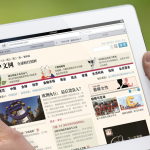
Nine people have gone on trial in the central province of Hunan, China, accused of illegal organ trading and intentional injury after a 17-year old high school student sold one of his kidneys to buy an iPad and iPhone. The teenager, identified in a report by the state-run China Daily as Wang Shangkun from the Anhui province, was allegedly recruited through a chat room by one of the defendants, and paid 22,000 Yuan ($3,456) for the organ, which was removed in an illegal transplant operation by a team from a local hospital. The kidney was sold by the gang behind the trade to an unknown buyer for 150,000 Yuan ($23,566) and a further $10,000 in cash, netting them a profit of around $30,000.
While to Westerners $3,458 seems a shockingly low price to sell a kidney for (especially considering how much the recipient was willing to pay), it’s important to put that figure into context. The average wage paid to workers assembling Apple products at Foxconn is around 2,200 Yuan ($346) a month, so the figure Wang received would have equated to nearly ten months’ salary for someone working at the plant -- a colossal amount of money to a young man still in full-time education.
The problem with cloud security is...

Sharing details of the hack that “wiped his life” has earned Mat Honan a place in the annals of information system security; the specific interdependence of flawed authentication systems that cost him so dearly -- encompassing Apple, iCloud, Amazon.com, Gmail and more -- would probably still exist if Honan had not gone public. Wired has the full story for those who have not been watching it unfold on Twitter.
As news spread last weekend about how much of Honan’s data the hackers had wiped out -- by social engineering Apple Support into wiping his iPhone, iPad and MacBook -- the company quickly moved to suspend over-the-phone resetting of Apple ID passwords. Amazon also reacted and, according to a follow-up report in Wired: “handed down to its customer service department a policy change that no longer allows people to call in and change account settings, such as credit cards or email addresses associated with its user accounts”.
© 1998-2025 BetaNews, Inc. All Rights Reserved. Privacy Policy - Cookie Policy.